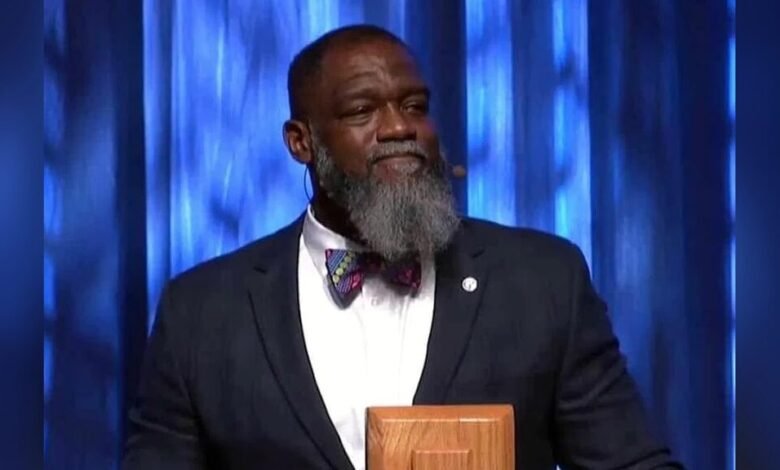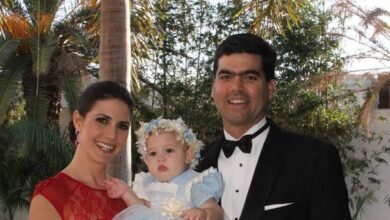Voddie Baucham: A Life Remarked, A Legacy Defined

In a world of fleeting fame and transient influence, Voddie Baucham stands out as a figure whose life narrative reads like a compelling novel—one that spans sport, conversion, conviction, culture, and community. He was far more than a pastor or author; he was a movement-maker, a cultural apologist, and a voice for families and faith. This article delves deeply into the story of Voddie Baucham, presenting his journey from Los Angeles to Zambia, from athlete to educator, from seeker to preacher—and offering a portrait of how his theology, family commitments and ministry interplay to form an enduring legacy.
Voddie Baucham – Early Life, Conversion and Calling
The story of Voddie Baucham begins in South-Central Los Angeles, where he was born on March 11, 1969, to a teenage mother and a house shaped by absence of father and formal faith. He was raised by a Zen-Buddhist mother and experienced a childhood marked by displacement, identity searching and the longing many young men feel for meaning. His early years would play out in ways that deeply influenced his future emphasis on fatherhood, discipleship, and household faith.
As a teenager he moved to South Carolina to live with an uncle who was a Vietnam-era Marine—a change of context that exposed him to structure, mentorship and male leadership in a way he had lacked. Later, in Texas and college, he engaged in athletics—tight-end on the football field—and transferred schools until he found his place at Houston Baptist University. It was during his college years that he encountered the Christian gospel and underwent a conversion that would set the trajectory of his life.
The conversion story of Voddie Baucham is a key chapter. He did not grow up steeped in church culture; rather he discovered faith on his own terms. That outsider perspective gave his later ministry a unique voice—someone who knew what it was like to move toward faith without tradition, who could speak to skeptics and seekers alike.
From there he pursued theological training: a B.A. in Christianity and Sociology, an M.Div., and ultimately a D.Min. After postgraduate studies at Oxford, he embarked on pastoral and teaching roles. His early ministry work included church planting and mission roles in Texas. In 2006 he co-founded Grace Family Baptist Church in Spring, Texas, where he served as pastor of preaching until 2015. That same year he and his family moved to Lusaka, Zambia, where he became Dean of Theology at African Christian University. With nine children, a homeschooling commitment and an international relocation under his belt, he and his wife Bridget lived what he preached: family, faith and fidelity.
By stepping into leadership roles on two continents, Voddie Baucham combined pastoral work, educational leadership and cultural commentary. In simple terms, he was a pastor who taught, a teacher who preached, and a cultural critic who engaged families.
Ministry, Writings and Cultural Apologetics
To truly understand Voddie Baucham is to explore his writings, his ministry focus, and his cultural diagnostic lens. He authored a number of influential books—Family Driven Faith, Expository Apologetics, Fault Lines—each shaping and reflecting his worldview. His emphasis on biblical manhood and womanhood, home education, expository preaching, and the critique of modern social justice ideology positioned him as a distinctive voice in evangelical circles.
His book Fault Lines: The Social Justice Movement and Evangelicalism’s Looming Catastrophe offers one of his signature cultural interventions. In it, he argued that contemporary movements of social justice and critical race theory, while well-intentioned in some aspects, were in his view undermining biblical frameworks of sin, redemption and justice. For many, that message was polarizing—highly praised by some, heavily critiqued by others—but it underscored his willingness to engage tough cultural terrain rather than avoid it.
Another hallmark of his ministry was his teaching on the family and the home. Having grown up in an unstable home environment, he became passionate about fathers, discipleship and homeschooling. He and Bridget homeschooled their nine children, and he regularly spoke on the importance of fathers leading their families and homes as spiritual shepherds. This wasn’t a side note—it became central to his identity and ministry message.
Additionally, Voddie Baucham lived out a form of global ministry. Moving to Zambia in 2015 showed his commitment to the global church. As Dean of Theology, he was instrumental in training pastors and leaders in Africa, helping create infrastructure for Christian education and service. That move embodied his belief that the gospel transcends cultural and national boundaries, and his work in Zambia reflected that conviction.
His preaching style—bold, unapologetic, rooted in Scripture, culturally aware—helped him traverse denominational and national boundaries. Whether speaking to pastors, families, or students, Voddie Baucham sought to make theology practical, the gospel real, and discipleship normative.
Trials, Health, Legacy and Final Chapters
No life essay is complete without struggles, and Voddie Baucham faced serious ones. In February 2021 he experienced heart failure—a critical health event that threatened his ministry and his life. At the Mayo Clinic in Florida he underwent major surgery, endured recovery, and emerged with renewed determination. His transparency about the ordeal—and the donor-supported funding for his treatment—revealed both vulnerability and community.
In late 2024 he returned to the U.S. and in 2025 accepted the role of founding president for a new seminary: Founders Seminary in Florida. Tragically, on September 25, 2025, after an emergency medical incident, Voddie Baucham passed away at the age of 56. His death resonated widely across the evangelical world, prompting reflections on his influence, convictions and the unfinished dimensions of his ministry.
Despite a life cut relatively short, the legacy of Voddie Baucham is multifaceted. He leaves behind nine children, multiple grandchildren, hundreds of students and mentees in Africa and the U.S., and books that continue to be read. His voice on theology, family, culture and education remains active, even in his absence.
What lessons can be drawn from his final chapter? First, the capacity to move globally—Texas to Zambia to Florida—speaks to a willingness to shift for mission. Second, his health crisis underscores that influence and leadership do not make one invulnerable; they make testimony possible. Third, his legacy is tied not just to what he taught, but how he lived—family, global mission, cultural engagement, home-discipleship. Fourth, though he is gone, the structures he helped build—educational leadership, theological training, discipleship networks—persist, and in that sense, his impact grows rather than fades.
Conclusion
The life of Voddie Baucham tells us something significant about purpose, influence and eternity. He began in a place many would call disadvantaged, found faith in unexpected ways, and deployed his gifts not for fame but for formation. He chose to speak truth in culture, to invest in home and global ministry, to engage warily with movements and ideas, and to teach his children what he taught his students.
If one were to sum up his legacy in a phrase, it might be: “thinking biblically, living faithfully, teaching globally.” That is the story of Voddie Baucham. He reminds us that a life anchored in conviction, shaped by trials, and oriented toward service can reach far beyond one’s own time.
It’s rarely the applause that defines a person—it’s the persistent footsteps left behind. And that’s precisely what Voddie Baucham leaves us: footsteps of convictions lived, missions embraced, and faith forged into action. His voice may no longer speak from the platform, but it echoes in the lives shaped, the families strengthened, the leaders trained, and the culture influenced.
May his life continue to inspire many to live for something greater than themselves—and may the proclamation of his greatest message, the gospel, continue to advance in the hearts of those who listen.





